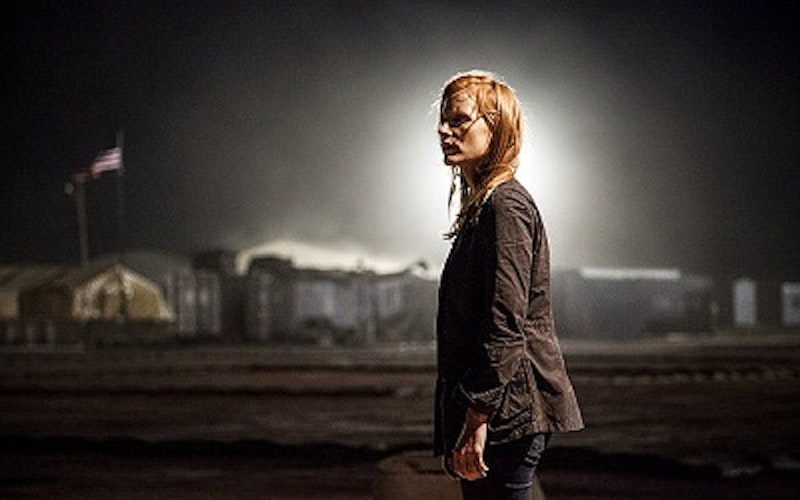
Music
Zero Dark Thirty and the value of ambiguity
Zero Dark Thirty, a dramatization of the hunt for and killing of Osama bin Laden, is up for five Academy Awards, but the movie has hardly been universally adored. While most critics swooned, political pundits in particular have taken the picture to task over its handling of the topic of torture.
The debate began in early December when The Guardian’s Glenn Greenwald – before having seen the film – denounced it for fabricating history and glorifying torture as an effective military tool. Those sentiments have been echoed in op-ed pieces since. According to this line of thinking, even suggesting that torture is effective as an information-gathering method is in essence an endorsement of the practice. And by allowing torture to be depicted without explicit comment, the argument goes, Zero Dark Thirty supports it.
There is a reason the fault line on this picture is so defined, with political columnists on one side and film critics on the other. Movies are wily creations, a fact reviewers are more comfortable with than pundits. If you expect them to always project a clear and cohesive message, you’re going to be disappointed (this can happen, but generally only in bad movies). Most often – and at their best – films are messy works of art that mutate depending on the cultural climate and the subjective nature of the audience.
In reading the complaints about Zero Dark Thirty, I get the sense that its opponents feel there is only one way to handle torture onscreen: with flashing text stating, “Torture is wrong. It is not effective. It did not lead to bin Laden. Torture is wrong.” As someone whose Christian principles lead me to believe that torture is an imago dei-damaging act that has no place in a Christ-like pursuit of justice, I agree that torture is always wrong. I also wish that we lived in a society in which it was commonly understood that torture is ineffective. But we don’t, and so we are forced to confront this terrible question: if torture was effective, would it be morally acceptable to employ it in the hunt for someone like bin Laden and in the hope of saving innocent lives?
We must allow movies to be read so differently, and to use narrative tools that will make room for such varied readings.
Zero Dark Thirty’s detractors have exaggerated the connection the movie makes between torture and capturing bin Laden (although we see information being gleaned via heinous acts of violence, I never had the impression that this directly led to the terrorist’s capture). Nevertheless, the movie’s ambiguity on this point did put my theoretical stance on torture to a “real-world” test. It forced me to answer that tough question in a way that a preachy denouncement of torture would not have done.
In other words, Zero Dark Thirty respected and provoked me as an audience member. Writing about the movie in Books & Culture, Paul D. Miller—notably not a film critic—applauded the picture for being willing to challenge its audience. “[Director Kathryn] Bigelow's film, by refusing to editorialize or tell its audience what to think about these questions, compels us to ask and answer them ourselves,” he wrote.
All of this leaves the open question as to what Zero Dark Thirty itself thinks about torture. As I’ve noted above, this depends entirely on how you read the film. Greenwald’s reading—he later did go and see the movie—is that the film is misleading on torture in general and on its use in the hunt for bin Laden in particular. I, in turn, find the movie deeply mournful, especially the final moments, which detail bin Laden’s death with nothing remotely resembling a jingoistic flourish (Elijah Davidson offers an especially eloquent detailing of this at Reel Spirituality).
We must allow movies to be read so differently, and to use narrative tools that will make room for such varied readings. Otherwise, in our rush to demand that a picture says the right thing about a topic in the right way, we come perilously close to something not nearly as troublesome as torture, but still worrisome: the shadow of artistic censorship.
Topics: Movies, Culture At Large, Arts & Leisure, News & Politics, Justice